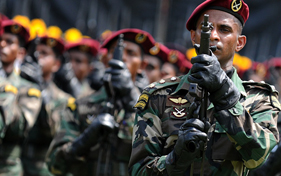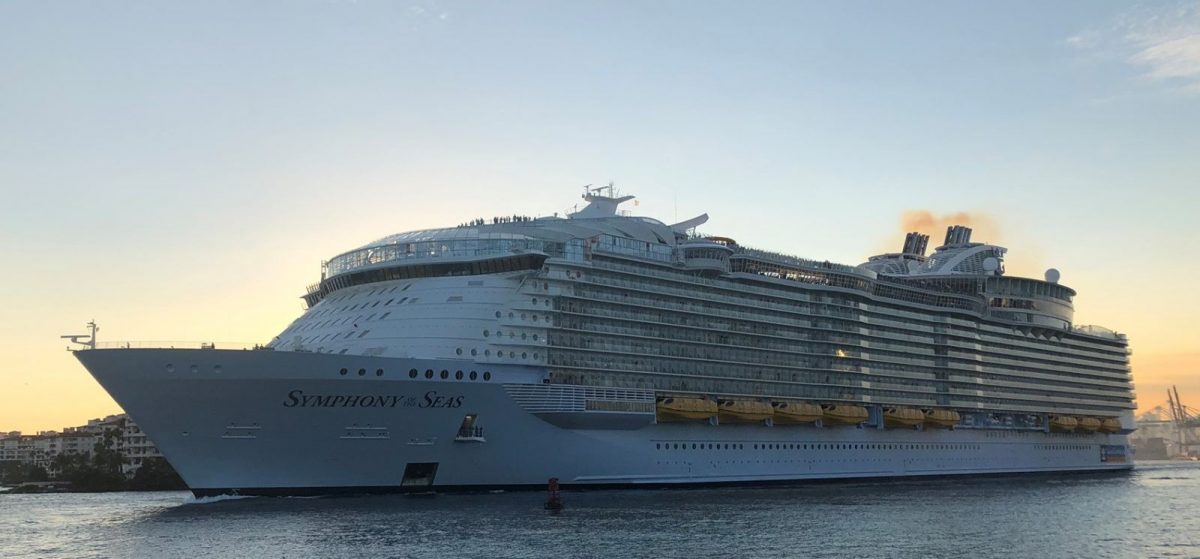Sri Lanka – military tourism?

Sowing the seeds for further violence
By running tourist businesses Sri Lanka’s military is undercutting local and foreign companies, and sowing the seeds for future violence as the Tamil minority continues to be marginalized. Writes Jeremy Luedi in Global Risk Insights
Sri Lanka has been seeking to boost its economy following the end of its civil war in 2009, with tourism being a key growth sector. The island nation is witnessing an impressive tourist boom, with foreign investors eyeing the country as a promising growth market. Despite these trends, tourism in Sri Lanka faces serious risks. Specifically, the country’s tourism industry is being dominated by the armed forces, which run a plethora of businesses, generating income for the defence department while keeping hundreds of thousands of troops in the north.
In response the UN exhorted Sri Lanka on October 20th to take immediate steps to strengthen Sri Lankan collective identity, as well as to reduce the role of the military in the private sector, including the return of occupied lands.
Sri Lanka is seeking to attract foreign investors for its tourism sector, with Thailand’s Dusit Thani already setting up shop in the country. The government is offering appealing incentives including guaranteed six percent return for five years, paid out quarterly in U.S dollars, freehold titles for owners, capital gains potential of around 30%, and cheap development land. Hotel chains in turn are lobbying the government to relax visa rules to facilitate longer visits. Despite these incentives, investors need to be aware of existing risks.
The problem for foreign investors is that the military is using press-ganged soldiers receiving negligible wages to staff resort and entertainment venues, undercutting competitors. This is also stifling attempts to create a viable economy in the region, as the Tamil population is excluded from even menial jobs, and the military entrenches itself in the civilian sector. We have seen this phenomenon in places such as Egypt, and it does not bode well for economic freedom or accountability.
Foreign investors risk associating themselves with military-linked service providers engaged in anti-Tamil discrimination. Foreign businesses also risk censure from ethically-conscious tourists, as various activist groups, such as the Sri Lanka Campaign for Peace and Justice, are already highlighting the ethical implications of frequenting military run resorts. There is also a serious medium to long-term risk of renewed violence and sectarian conflict. Consequently, investments in these areas are at risk from angry locals protesting the military and unfair development plans prioritizing tourism over local well being.
The perilous situation faced by Sri Lankan journalists and increasingly lack of accountability are also both threats to foreign investors. The former denies companies reliable, objective news and data, while the latter threatens increased corruption and ineffective arbitration – especially when military interests are involved. Lastly, any future downturn in tourism will not only be an economic, but also a security risk, as the revenue of the military is reduced. This may see the military either further undercut competitors, and/or enter other sectors to compensate, destabilizing businesses in its wake.
Read 2014 Vision on Sustainable Tourism story which first highlighted the problem HERE
Valere Tjolle
@ValereTjolle
 United Kingdom
United Kingdom United States
United States Asia Pacific
Asia Pacific












































CLIA expands trade support with expedition event
Qatar Airways adding Manchester flights
Jet2 unveils Samos as new Greek destination for summer 2026
EU entry-exit system delayed again
ATC strike in Greece could disrupt flights this week